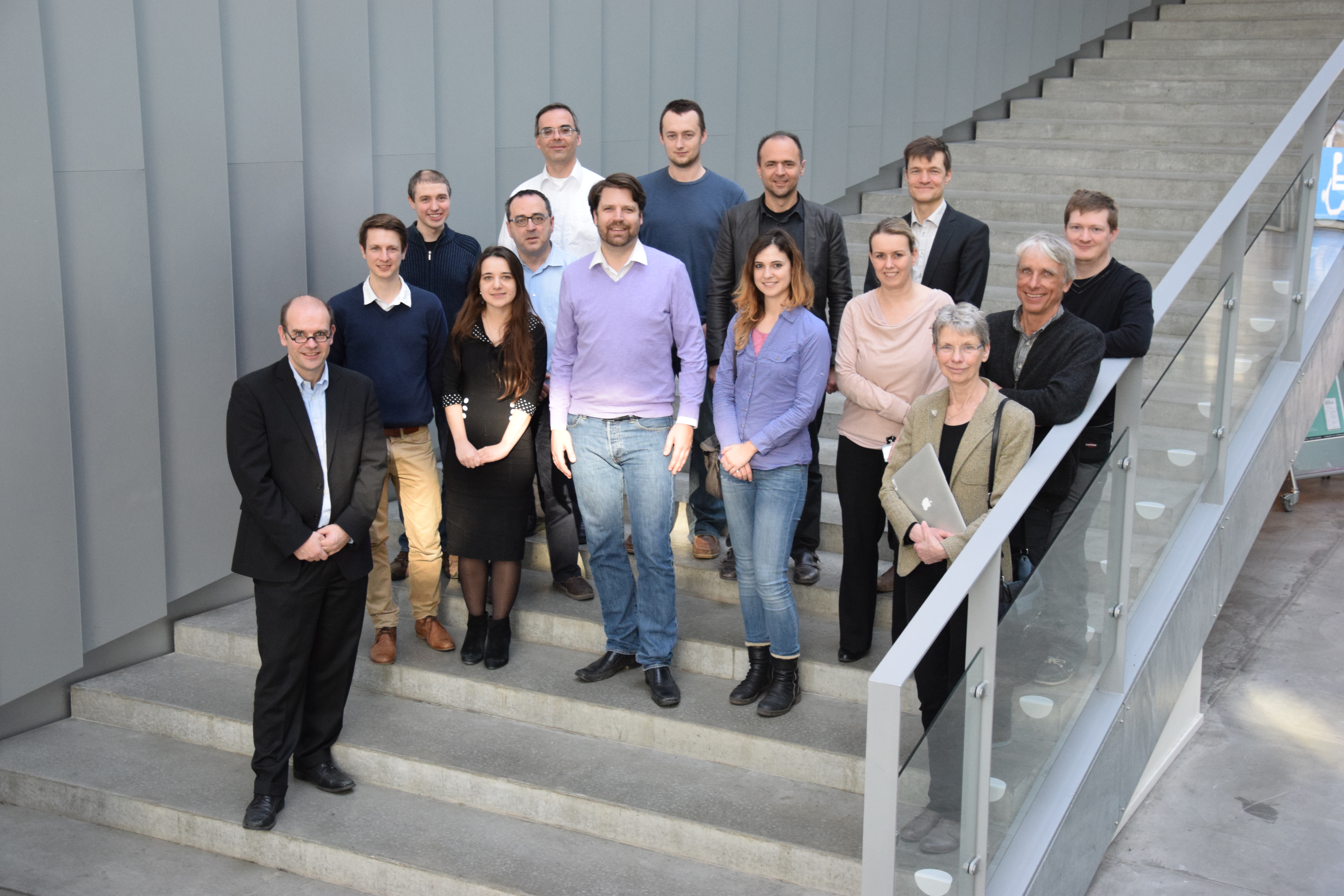Working Meeting 2015
The goal of this workshop is to kick-off a proposal-writing event for an ITN application. Location:
Monday, Tuesday: 3A08, IT University of Copenhagen.
Wednesday, Thursday, Friday: 4A05, IT University of Copenhagen.
Contact: Carsten Schürmann, carsten@itu.dk, phone : +4526393606

March 16, 2015
Session 1: Chair Robert Krimmer
9:00-9:45 Democracy in the Digital Age
Carsten Schürmann, IT University of Copenhagen, Denmark
Abstract. In this talk, I will try to develop and propose a vision for the Marie Curie
ITN proposal as a basis for discussion. Furthermore I will
given an overview about how we structure the next days of the workshop.
Slides.
9:45-10:30 e‐Voting & Law: What does E2E mean for legal
experts?
Jordi Barrat, Universitat Rovira i Virgili,
Spain
Abstract. Once accepted that verifiability is a
cornerstone in any e‐voting solution, several technical researches
have been conducted in order to set up End‐to‐End (E2E) electronic
voting platforms. The so‐called second generation of e‐voting
mechanisms intends to adopt such new features. However, legal
approaches still remain somehow aside. Specific legal frameworks for
E2E mechanisms have already been developed, but normally they do not
highlight potential shortcomings. They only intend to ease E2E
implementation. They adapt the legal language to E2E scientific
requirements, but it is worth wondering whether they manage to do
exactly the opposite, that is to say, to generate specific legal
pre‐conditions for E2E implementations.
In this regard, please note that law is focused on the content (what)
as well as on the procedure (how), the subject (who), the cause (why)
and the timeframe (when). While E2E procedures might provide sound
technical evidence, that is to say, contents that fulfil what is
expected by computer scientists, legal experts may require
supplementary data on how and when such evidence have been generated,
who were the responsible and which is the purpose.
Obviously E2E experts will have the appropriate answer for each doubt,
but perhaps just in technical (and not in legal) terms. Evidence would
have been generated in compliance with international scientific
standards, but let us wonder whether such standards also apply for
specific legal procedures. What is evidence for a computer scientist
might not be evidence for a judge. Or at least the judge could weigh
the same data in a different way. Taking into account all these
premises, the presentation will explore how to adapt E2E voting
platforms to legal pre‐conditions.
Coffee
Session 2: Chair Bernhard Beckert
10:45-11:30 E-Governance
Robert Krimmer, Tallin University of Technology, Estonia
11:30-12:15 Formal Verification of e-Voting protocols: Models, Properties and Tools
Jannik Dreier, ETH Zurich, Switzerland
Abstract. Since the beginning of e-voting, cryptographic voting protocols have
been analyzed using formal verification tools. In this talk I will
present our work in the area, ranging from (human) models over various
properties, verification techniques and tools, to applications to other
domains. In the end I will briefly discuss ongoing work, and
perspectives for the project proposal.
Lunch Cantine
Session 3: Chair Aggelos Kiayias
13:00-13:45 Human Centered Security and Privacy by Design for Electronic Voting
Oksana Kulyk, University of Darmstadt, Germany
13:45-14:30 Program Verification
Bernhard Beckert, University of Karlsruhe, Germany
In this talk, I will give an overview of our work on specifying and
verifying properties of voting systems. We have used various deductive
methods to prove declarative properties, such as monotonicity, for
simple plurality voting or more complex systems, such as single
transferable vote. At the beginning of my talk I will give a brief
introduction into specification and deductive verification for non-experts.
Slides.
Workshop Photo. Coffee
Session 4: Chair Filip Zagorski
14:45-15:30 The Demos E-voting system
Aggelos Kiayias, National and Kapodistrian University of
Athens, Greece
Abstract. In this talk we describe the demos e-voting system (www.demos-voting.org)
including a description of the design choices behind the system architecture,
its novel cryptographic algorithms as well as various issues related to its
deployment in voting procedures. Demos is an online e-voting system that supports
end-to-end verifiability, i.e., it allows voters to obtain a form of receipt after
ballot-casting that enables the verification of the inclusion of their vote into the final tally
while preserving the privacy of their choice. Demos utilizes novel cryptographic
methods to ensure end-to-end verifiability without the need for ideal randomness
as previous systems.The system is suitable for both onsite as well as online voting.
15:30-16:15 EMB perspective on the use of New voting technology (NVT) in Norway
Henrik Nore, Norway
In 2010 the ministry (EMB) in Norway started a process of renewing the ICT platform used for elections. This had been the responsibility of the municipalities. They are by law responsible for conducing the election
The government decided that the ministry should acquire, implement, operate and maintain a ICT system to be used for all elections in Norway. This should include internet voting, ballot scanning and a fully distributed electronic electoral roll to all poll stations. The solution should be based on open source.
I will tell the reason why Norway decided to do this and what happened.
Slides.
Coffee
Session 5: Chair Jordi Barrat
16:30-17:15 Trust
Judith Simon, IT University of Copenhagen, Denmark
17:15-18:00 Rump Session
Filip Zagorski, Worclaw University, Poland
Workshop dinner: Madklubben, Store Kongensgade 66, 19:00.
March 17 - 20, 2015 Writing. Facilitor for Tuesday and Wednesday: Annika Daugaard Thomsen